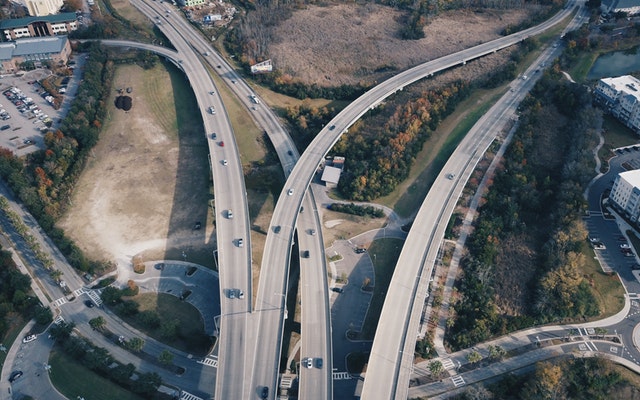Democracy, the free market, fairness, and socialism
April 18, 2019 - Reading time: 7 minutes

I was involved a while back in a brief and inconclusible Internet "discussion" of socialism. This stemmed from my criticism of a news article on KERA-FM in which a highway developer claimed (and was not challenged by the reporter) that the new toll lanes were the ultimate in "democracy." It seemed clear to me that the speaker did not really understand democracy. In fact, it seemed to me that toll roads have very little to do with a governmental system. If we wanted to use "democracy" as a metaphor for a market system, it seems to me that the toll system is more of a plutocracy. Those who can afford better roads get them. This simply doesn't seem fair if we agree that a fully functioning transportation system is a right of all people—but obviously we don't agree on that. Regardless, "democracy" isn't the right word. Democracy means everyone gets to vote about something. Everyone doesn't get to vote about which road to take if you have a toll road. If you cannot afford it, you don't take the toll road. You sit in traffic on the freeway. It may be representative of a "Free market" perhaps, but the free market is not the equivalent to democracy, although some seem to conflate the two. There are plenty of examples of democracies that have tightly controlled markets in many things.
Basically, we live in a world of mixed economies. Unless you live in Milton Friedman's world, we make trade-offs between freedoms and protections. Hopefully, along the line we strike a balance. Where that balance is, of course, is up to negotiation and debate.
So, after making my comment that democracy was perhaps incorrectly used in this context, one person said that it was just a matter of time before the government messed it up by providing discounts for poor people and that socialism never built good roadways. I beg to differ! This person obviously has bought into the boogeyman theory of socialism. They do not realize that in fact our highway system has traditionally been socialized since the early twentieth century and culminated in its greatest achievement in the form of the Eisenhower Interstate System. The person responded that socialism would mean giving the poor a discount. While one can conceive of any system of production having needs-based pricing, that is not an inherent feature of socialism.
This is the problem with discussing anything in our society with regard to government and the economy. We're still suffering from being piled under the weight of the Cold War: Socialism = BAD. Democracy=GOOD. The problem with this is that it's a false dichotomy that has been reinforced through years of ideology. Why not have democracy with a little socialism for things we care about? Look, we did it with the fire department.
The other challenge here, however, is that we have competing definitions of fairness. In America today, some of us celebrate a definition of fairness that revolves around equality. Equality, however, is not all there is to fairness. It also involves equity or justice. In some ways, this comes down to a "give a man a fish, and he's fed for the day, teach a man to fish, and he's fed for a lifetime," being taken to an extreme of "don't give anyone fish, and teach a man to fish only if he can pay." So if Billy and Bob both have two fish, and George has none, don't you dare take ½ a fish from Billy and Bob to give to George because that wouldn't be fair to them. Built into this scenario is a belief that someone (George) has done something to deserve that lack of fish. That's "fairness." Taking one away Billy and Bob in the name of humanity is "unfair." This is a little outrageous, but that's what it has come down to. That man should starve because taking fish from the others who have more than enough fish is unfair and "undemocratic," some would say. Really? What if we have a vote and every person has a vote, and the question is raised, "Should everyone who has more than one fish give half a fish to someone who has none?" If Bob and George vote "yes," and Billy votes "no." Is that not democratic? I say that it is indeed. Is it socialist? Maybe, in a non-traditional sense. Is it redistributive? Certainly. Taking from others can be totally democratic. Is it fair or unfair? I don't know. That's why there is a certain tragedy in the power of the majority at times, and why many societies rely upon the courts to protect the minority in the face of a majority that acts with cruelty against the minority. After all, Jim Crow laws were legal.
At this point, I'm getting off the track a bit, but the bottom line is that the free market's "pay what the market will bear" is not an example of democracy in action. The laissez faire is not the equivalent of democracy. One is how we organize our economy, and the other is how we organize our communal decisions and shared resources. In a pure free market, there is no one deciding. In a pure democracy, we all decide. How can there be a crossover in such a case? In the end, it doesn't matter, because we don't live in either. We make compromises about what we think is important as a community.
Photo by David Martin on Unsplash